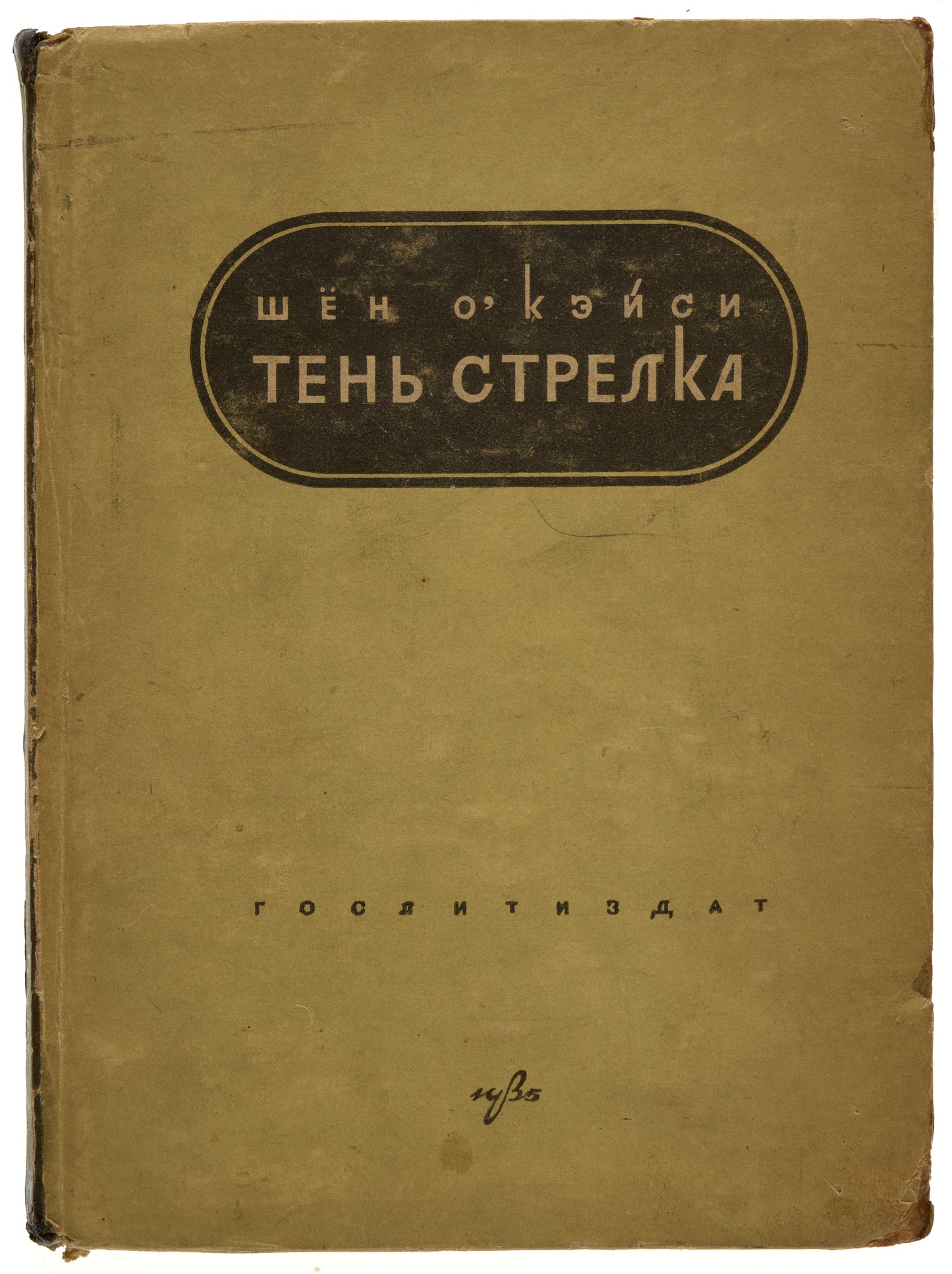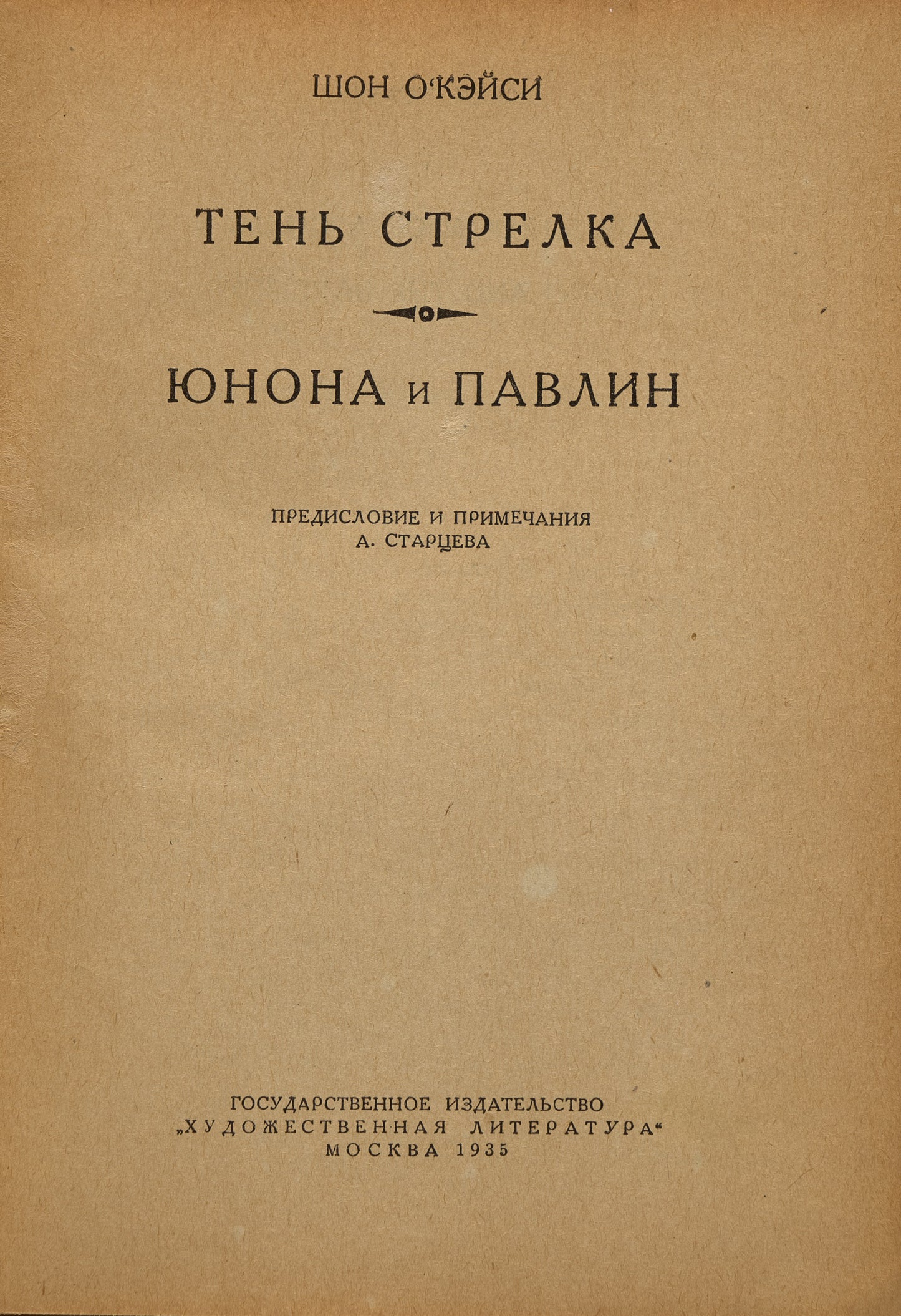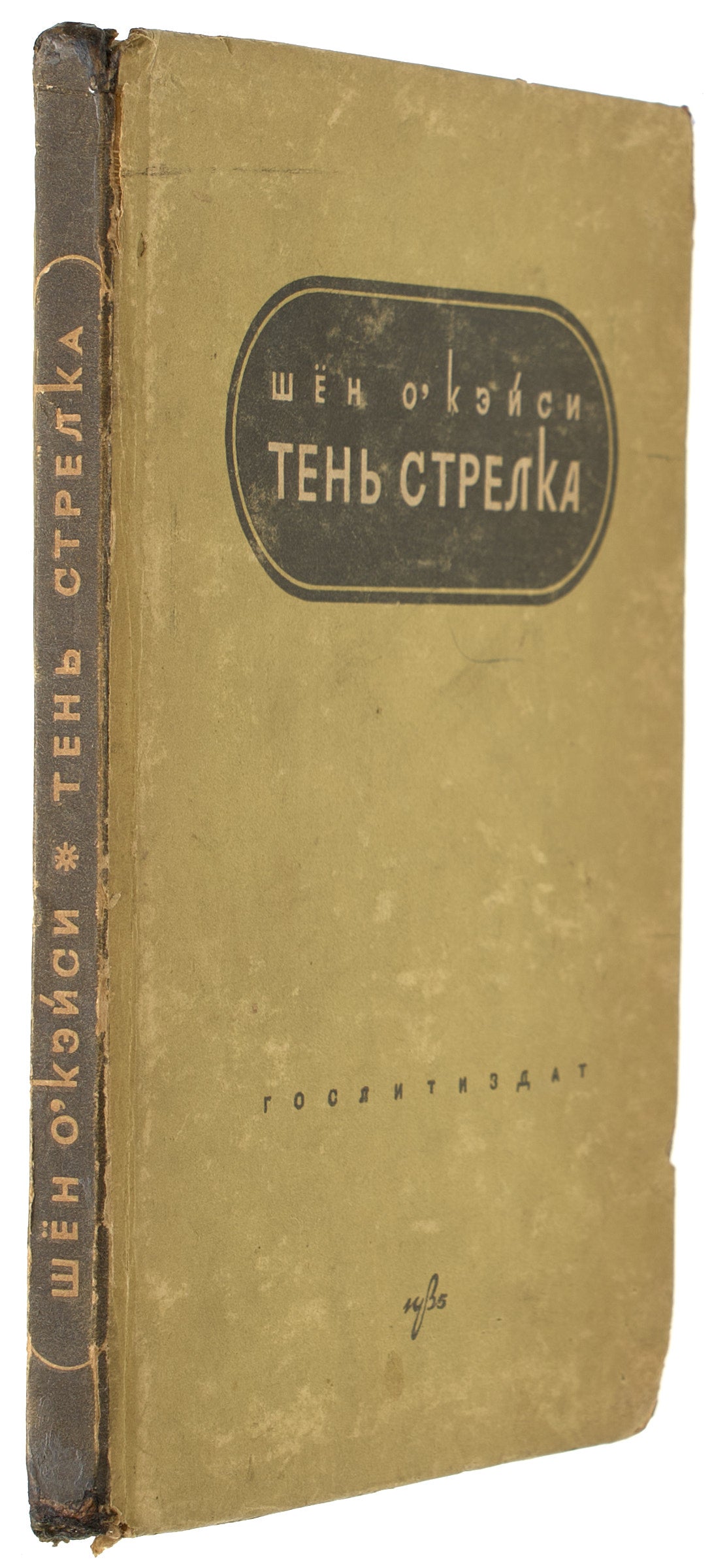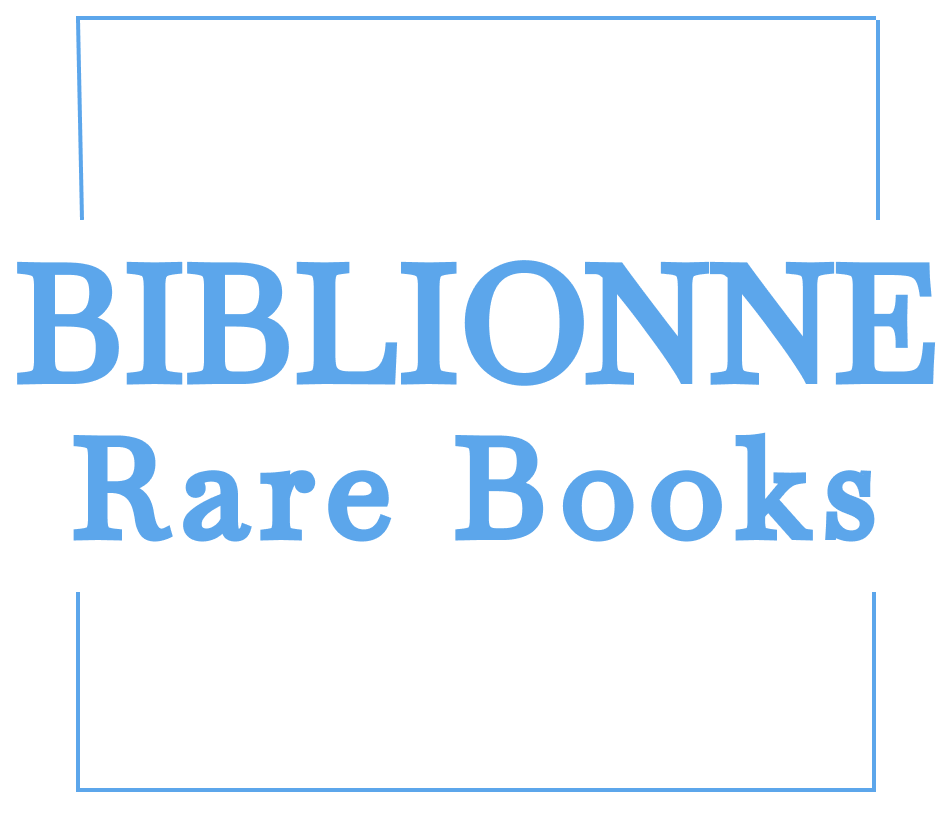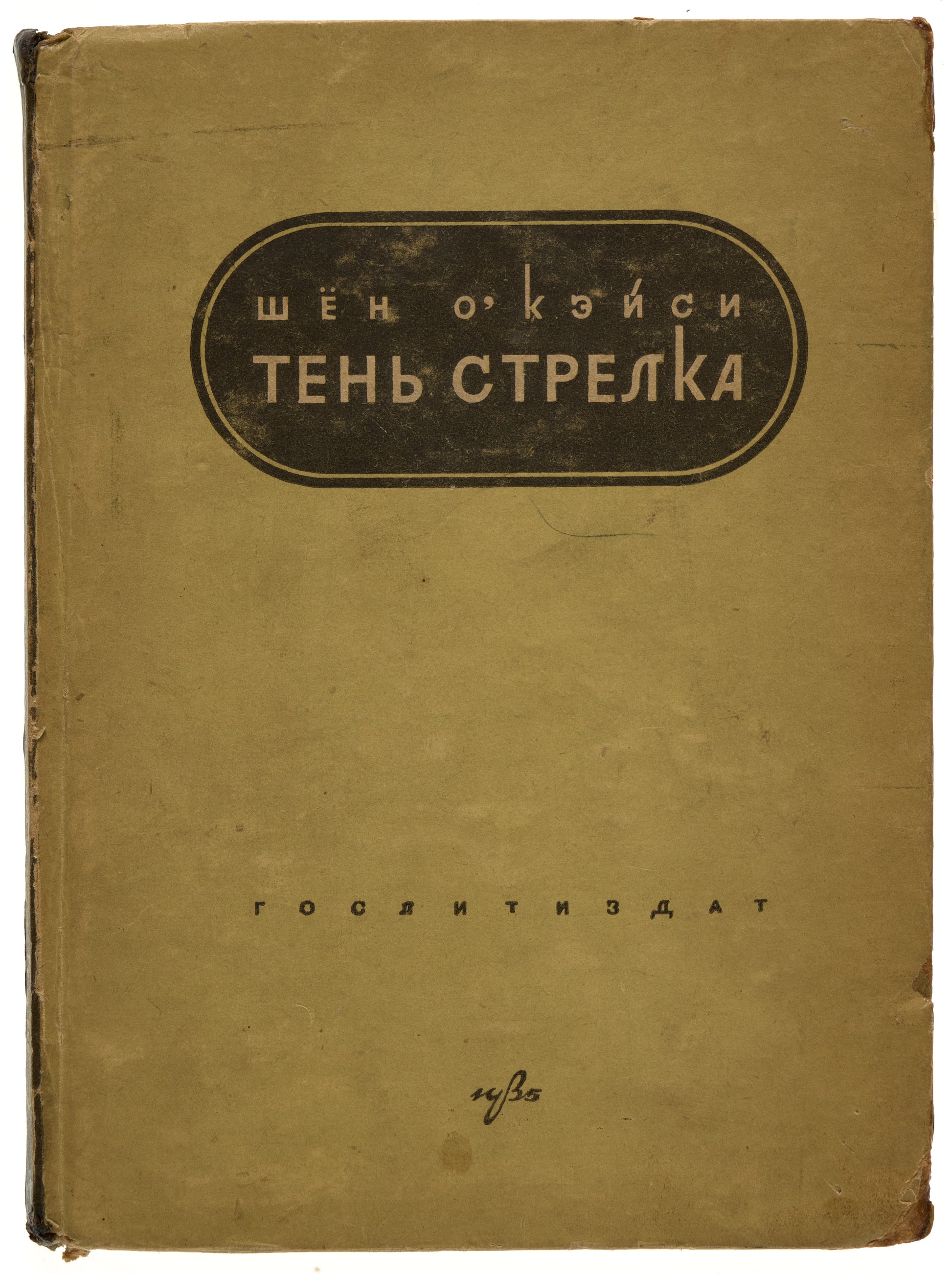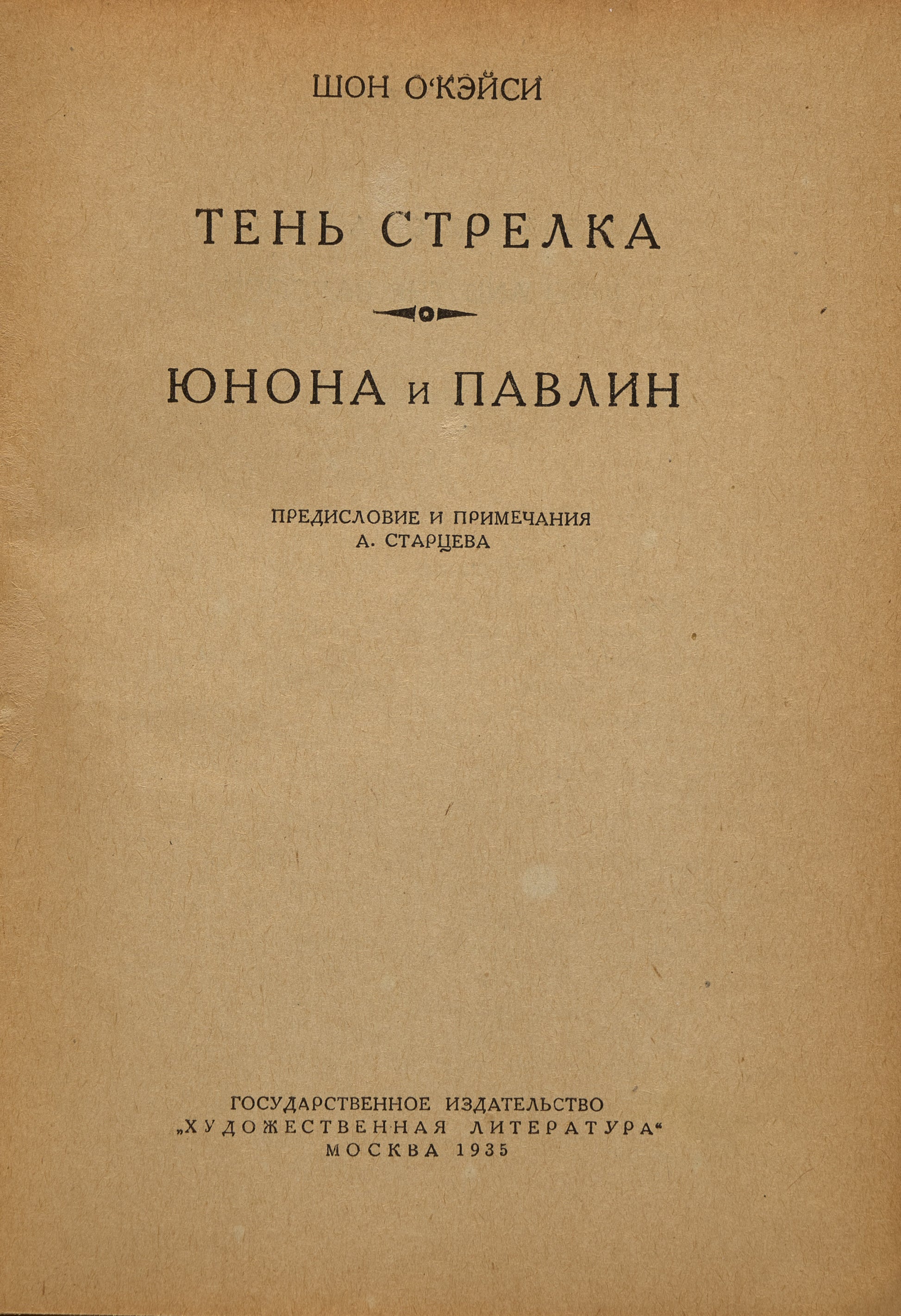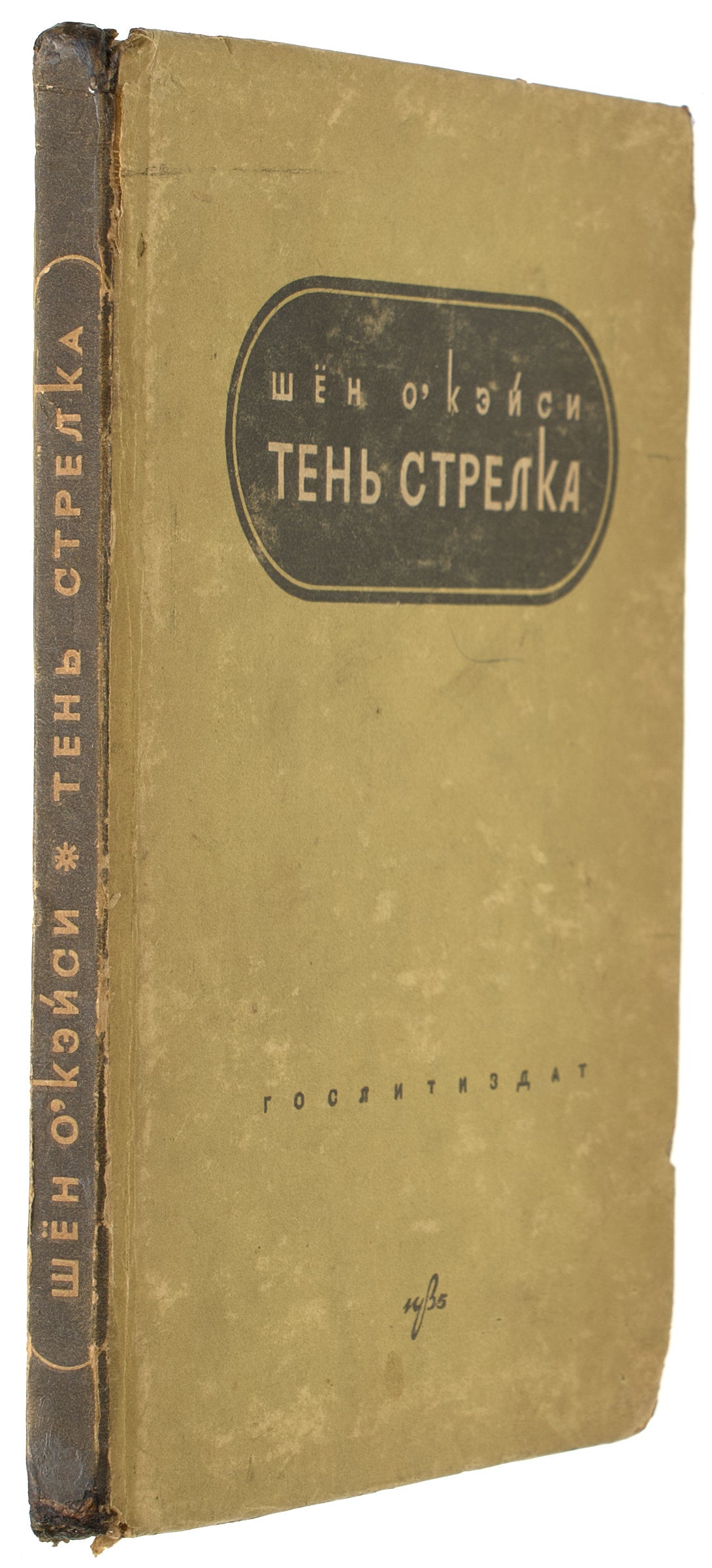O'Casey, Seán
The Shadow of a Gunman. Juno and the Paycock. First O'Casey’s Russian book.
The Shadow of a Gunman. Juno and the Paycock. First O'Casey’s Russian book.
Couldn't load pickup availability
O'Casey, Seán [The Shadow of a Gunman. Juno and the Paycock]. Ten’ Strelka. Iunona i Pavlin.
Foreword and notes by A. Startsev.
[Translations by N. Treneva, G. Konushkov, and N. Volzhina].
Moskva, Gosudarstvennoe izdatel’stvo “Khudozhestvennaia literature”, 1935.
12mo, 149, [2] pp.
In original paper-covered boards. With errata slip.
In good condition, slightly rubbed, faintly spotted, corners a little bumped, small losses to spine ends (touched up in black).
First O'Casey’s Russian book. One of 5 000 copies printed.
Seán O'Casey (1880–1964) was an influential Irish dramatist, memoirist, and socialist, recognized as the first major Irish playwright to focus on Dublin's working class.
This book contains two plays from O'Casey's 'Dublin Trilogy', which are set during the Irish War of Independence and were first performed at the Abbey Theatre in Dublin between 1923 and 1924. In 1930, Alfred Hitchcock directed a British film adaptation of 'Juno and the Paycock'.
O'Casey had a notable connection with the USSR. He was active in the Socialist Party of Ireland between 1917 and 1921 and participated in the 'Hands Off Russia' meetings held in Dublin, which protested Allied intervention against Soviet Russia. In 1927, O'Casey mentioned in a letter that he had been contacted by Russia regarding translations of his work, and he corresponded with Mikhail Apletin, Chairman of the Foreign Commission of the Union of Writers of the USSR.
However, this 1935 Russian edition of O'Casey's work is notable, as his next book was not published in the USSR until 1946. His later work, particularly the 1928 expressionist play 'The Silver Tassie', was criticized in the USSR for its pacifist themes, which were seen as detracting from 'genuine national liberation struggles'. This criticism likely contributed to the pause in his publications in the Soviet Union until the late 1950s and early 1960s.
We couldn’t trace any copy of this edition via OCLC.
